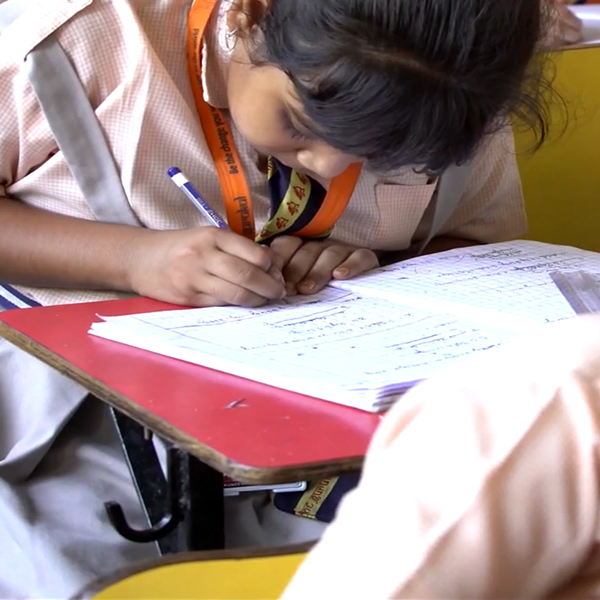
Individualized Learning
At The Gurukul, we recognize that every child is unique, with distinct strengths, interests, and learning paces. Our individualised learning approach includes:
- Personalised CurriculumEducators adapt lesson plans to match each child’s abilities, strengths, interests and areas for growth, ensuring they are made to challenge their horizons, think out of the box but at the same time don’t get overwhelmed.
- Diagnostic AssessmentsThese are like check-ups for learning. They are tools educators use to figure out what a learner already knows and what areas they might need extra help with before starting a new topic or lesson. Unlike tests that give grades, diagnostic assessments help educators understand each learner’s strengths and weaknesses, pinpointing specific skills or concepts they’ve mastered and those where they might have doubts or gaps in their knowledge.
- One-on-one SupportOur educator-child ratio in every class is 18:1 so that the Educators can focus on each and every child. Dedicated time with the Educators helps the child to open up, and creates a supportive learning environment where learners feel comfortable asking questions and expressing difficulties. This personalized attention helps address specific challenges and reinforces strengths, ensuring everyone moves together.
We ensure that educators act as facilitators, guiding learners through their learning journey with targeted support and resources. This approach fosters a love of learning and empowers learners to achieve their full potential.
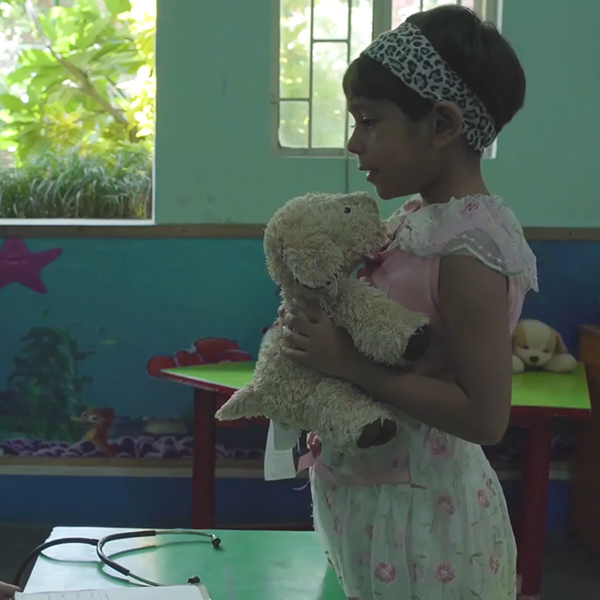
Experiential Learning
Learning by doing is central to our philosophy, making education a dynamic and engaging process.
- Field TripsWe make sure to take our young learners for visits to nature parks, agricultural farms, fisheries, and local communities to provide firsthand exposure and deepen classroom learning by connecting concepts to real-world contexts.
- Interactive ActivitiesWe allow the child to understand the academic concepts through experiments, role-play, story-telling, and a clay-based approach to make abstract ideas tangible. These further foster creativity and empathy.
- Nature Walks and Farming/PlantingStudents engage in nature walks to observe ecosystems and learn about biodiversity. Farming and planting activities teach responsibility, patience, and an appreciation for sustainable practices.
- ReflectionAfter each experiential activity, learners are encouraged to discuss and document their observations and insights. This reflection helps them internalize lessons and draw meaningful connections between experiences and academic content.
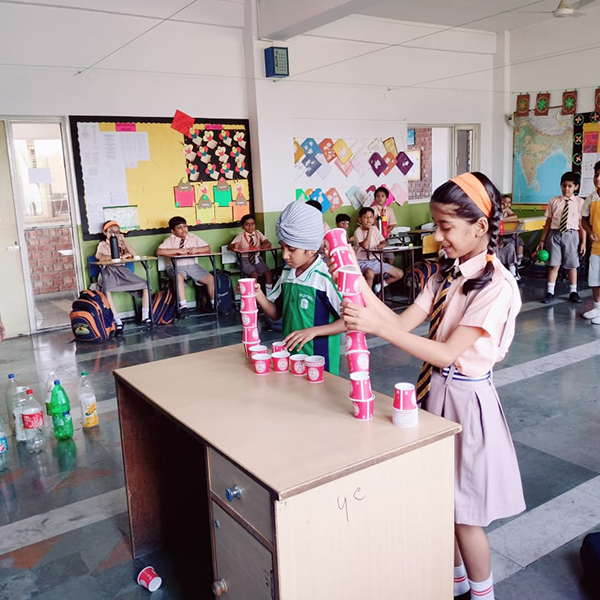
Language for Effective Communication
The Gurukul emphasises on developing strong communication and linguistic skills. Our primary program focuses on building a strong foundation in language, both oral and written.
We provide numerous opportunities for learners to express themselves clearly, confidently, and creatively. This includes regular storytelling sessions where learners develop narrative skills and public speaking confidence, age-appropriate presentations that encourage organization and clear delivery of information, engaging classroom discussions that foster critical thinking and respectful exchange of ideas, and creative writing exercises that allow learners to explore their imaginations and develop their written voice.
Beyond just expressing themselves, we also place significant emphasis on active listening, teaching learners how to truly hear and understand what others are saying.
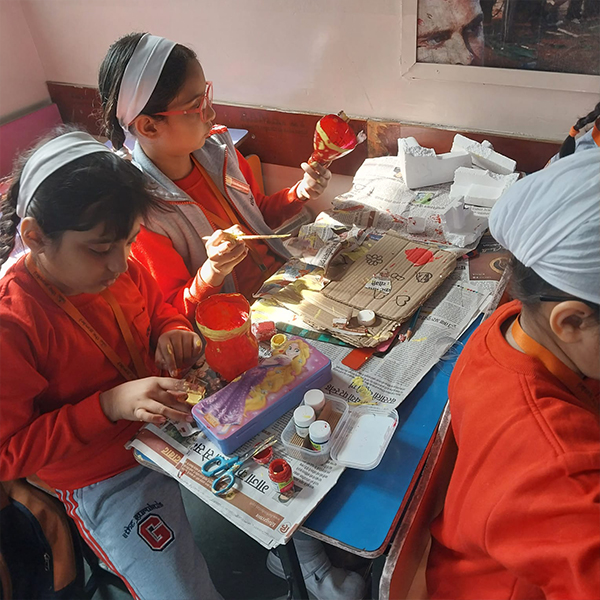
Montessori-Inspired Practices
Drawing inspiration from the Montessori method, we create a “prepared environment” designed to nurture a child’s natural desire to learn.
- Prepared EnvironmentOur classrooms are carefully designed to be child-centered; organised, bright and aesthetically pleasing with creative caricatures on the walls. Some classrooms even have talking walls to encourage independence and exploration.
- Talking WallsOur classrooms feature “talking walls,” which are interactive displays showcasing learners’ work, learning processes, and key concepts. These walls serve as visual reminders of learning, encourage learner ownership of their work, and provide opportunities for review and reflection.
- Hands-On MaterialsWe encourage learners to engage in activities like planting and tending a garden, learning to identify local flora and fauna, and expressing their creativity through diverse art mediums such as crayons, clay, paint, and paper. Practical life skills are also nurtured through activities like mastering zippers, buttons, and buckles, as well as developing fine motor skills through pouring, scooping in sand or water tables, and gluing. These experiences foster independence, coordination, and a deeper connection to the world around them.
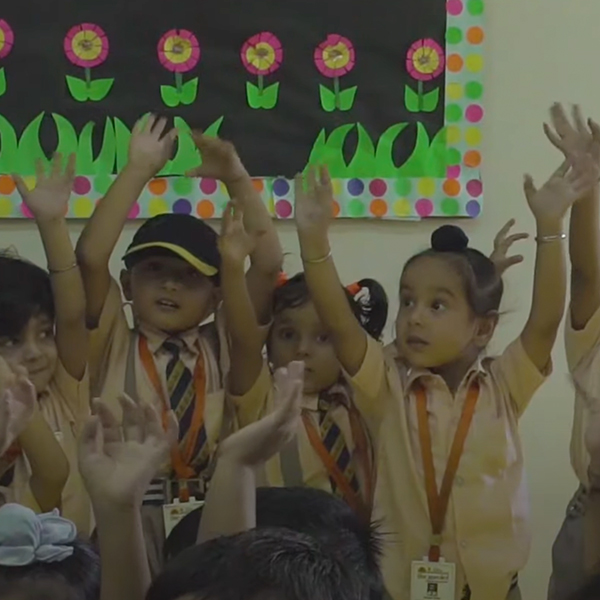
Play-Based Learning
Play is not just recreation; it’s a fundamental way learners learn and develop. Our primary program integrates play-based learning throughout the curriculum, recognizing its profound impact on a child’s holistic development.
At The Gurukul, we embrace play-based learning as a learner-directed and educator-facilitated approach that honors learner’s natural inclination to explore and discover. Recognizing that learners are inherently wired to learn through play, we create environments, both indoors and outdoors, that encourage free and unstructured exploration. Our educators act as facilitators, carefully curating spaces filled with diverse materials and opportunities that spark curiosity and creativity. Rather than directing activities, we empower learners to choose their own play experiences, fostering intrinsic motivation and a deeper understanding of the world around them. This approach allows learners to learn at their own pace, develop essential social-emotional skills, and build a strong foundation for future academic success, all within a joyful and engaging atmosphere.
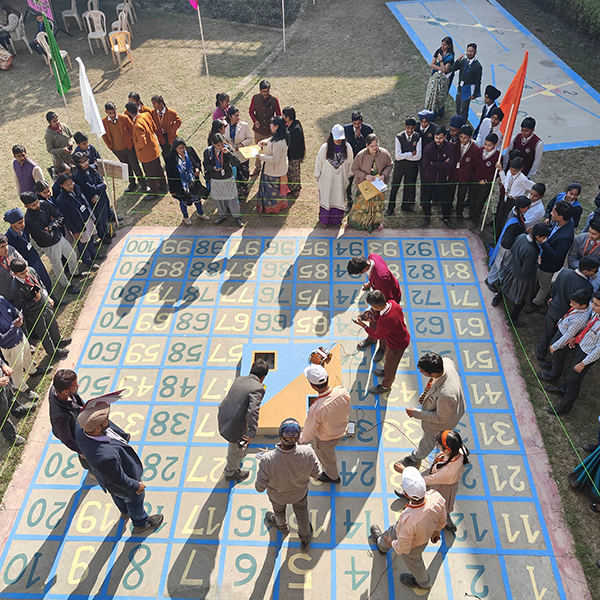
Building as Learning Aid (BaLA)
Our school infrastructure is thoughtfully designed to function as an interactive learning resource. We believe that the environment and surroundings play a crucial role in shaping a learner’s learning experience.
Our campus has interactive spaces like walls, floors, and corridors that are used to display educational content, including planets, numbers, and art installations that spark curiosity. Features like abacus pillars, number grids, and science murals provide tactile and visual stimuli for practical understanding. From thoughtfully arranged learning corners to dedicated spaces for creative expression, our buildings are not just structures; they are integral tools that enhance the learning process and inspire curiosity.
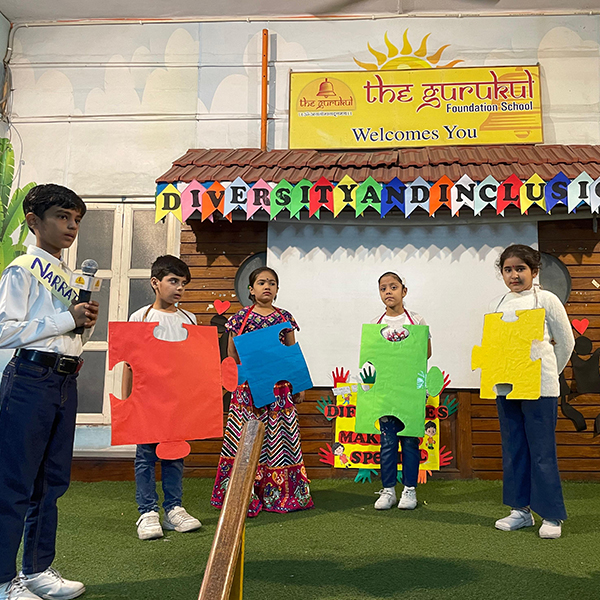
Problem-Solving Approach
We empower our learners to become confident problem-solvers. Our curriculum emphasizes a problem-solving approach, encouraging learners to think critically, analyze situations, and develop creative solutions. We present real-world scenarios and challenges that require learners to apply their knowledge and skills. Through collaborative projects, open-ended questions, and guided discussions, we nurture their ability to think outside the box, persevere through challenges, and learn from their mistakes. This approach equips them with essential life skills that extend far beyond the classroom.
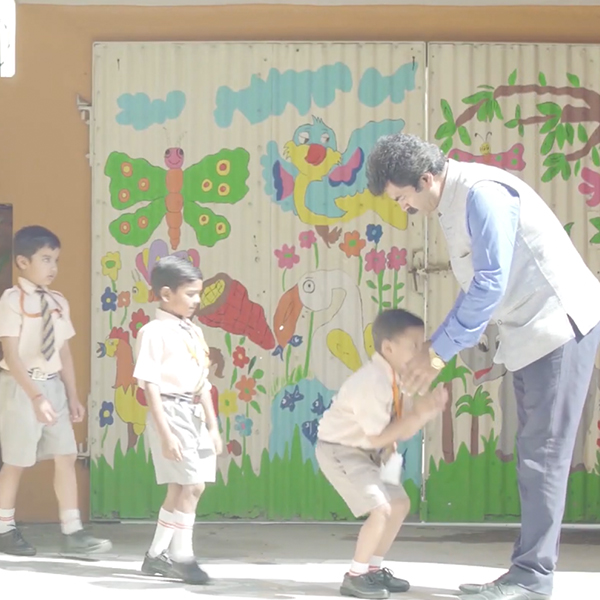
Values and Character Education
The Gurukul lives by the famous quote said by Swami Vivekananda Ji; “We want Education to be formed by character, strength of mind is increased, the intellect is expanded, and by which one can stand on one’s own feet”.
This quote lies at the heart of Gurukul’s philosophy, hence we put a strong emphasis on values and character education. We believe that developing strong moral character is just as important as academic achievement. We integrate values such as respect, honesty, empathy, responsibility, and integrity into our daily interactions and curriculum. Through stories, discussions, role-playing, and community service projects, we help learners understand the importance of these values and how to apply them in their lives. We strive to create a nurturing and supportive community where our learners learn to become responsible, compassionate, and ethical individuals, contributing positively to the nation.
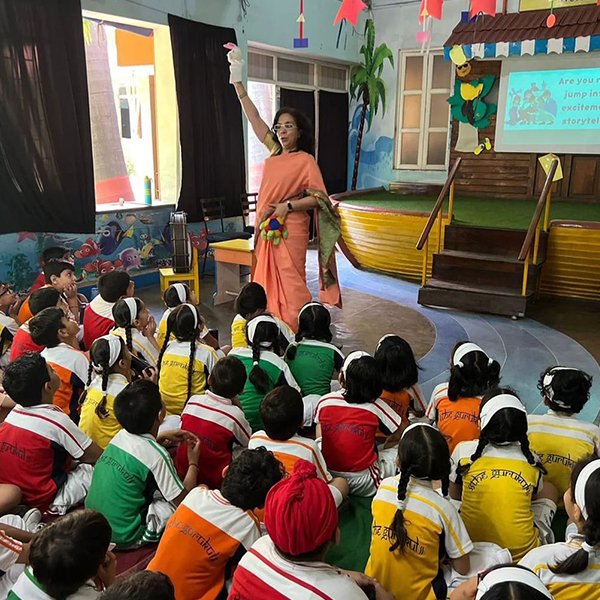
Personal, Social, and Emotional Nurturing
A child’s personal growth is as important as academic success. We try to provide a nurturing and supportive environment where learners feel safe, valued, and understood. We prioritize a three way handshake; building strong relationships between students, teachers, and families. At Gurukul Foundation School, we prioritize emotional intelligence, helping learners understand and manage their emotions. Social skills are fostered through circle time, group discussions, and cooperative tasks that teach empathy, active listening, and conflict resolution. Individual attention from teachers ensures personalized guidance to support each learner’s emotional well-being, while peer support through buddy programs and collaborative activities builds strong, nurturing relationships among learners. This comprehensive approach creates a foundation for confident, empathetic, and socially adept individuals.
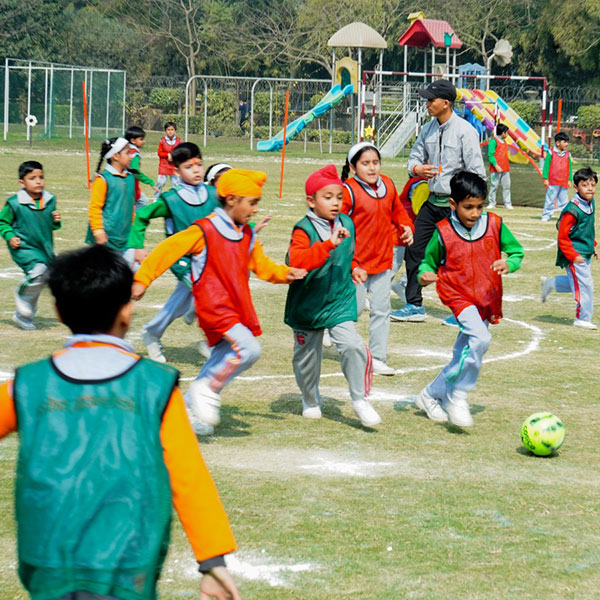
Physical Development Emphasis
Recognizing the vital link between physical and cognitive development, Gurukul places a strong emphasis on physical activity. We provide ample opportunities for learners to engage in movement, play, and outdoor activities. Our program includes regular physical education classes, organized sports, free play in nature, and movement breaks throughout the day.
These activities promote gross and fine motor skills development, coordination, balance, and overall physical health. We believe that a healthy body supports a healthy mind, creating a strong foundation for learning.
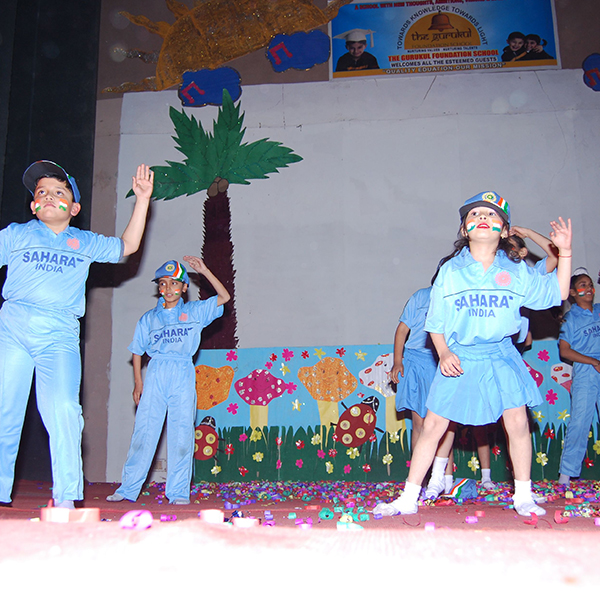
Visual and Performing Arts
Art, music, dance, and drama are woven into our curriculum to foster creativity and self-expression. Learners are encouraged to explore various forms of visual and performing arts, which enhance their cultural awareness and emotional intelligence. At the primary level, visual and performing arts are not just about creating pretty pictures or putting on a show; they are vital tools for learning and self-expression. Through painting, drawing, music, drama, and movement, our young learners explore their creativity, develop their imaginations, and express their feelings in non-verbal ways. These activities enhance fine motor skills, coordination, and concentration.
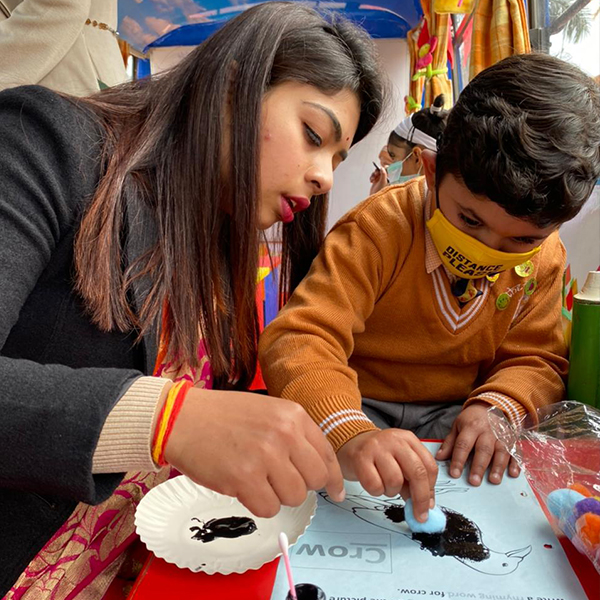
Child-Centered Environment
Our primary school classrooms are designed to be child-centered spaces where learners feel safe, comfortable, and empowered to explore. Furniture is child-sized, materials are easily accessible, and learning areas are designed to encourage interaction and collaboration. Educators act as facilitators, guiding learners through their learning journey and providing individualized support. We prioritize creating a positive and nurturing atmosphere where learners feel valued, respected, and heard. This approach fosters independence, self-confidence, and a love of learning, allowing each child to thrive at their own pace.
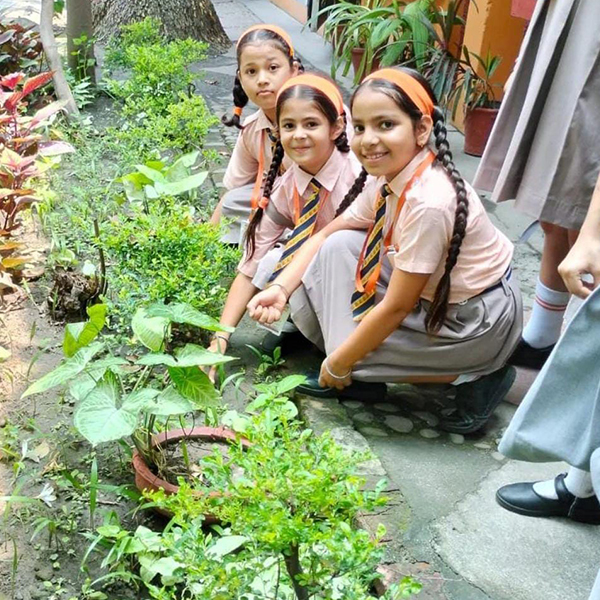
EEP (Environmental Education Programme)
Our Environmental Education Program (EEP) introduces young learners to the wonders of the natural world and fosters a sense of responsibility towards the environment. We have designed dedicated spaces, including a small garden within the school, where learners can engage in hands-on learning about organic farming, different types of vegetables, and plant life cycles. Through these experiences, along with nature walks and recycling projects, learners develop a deeper understanding of ecosystems, biodiversity, and sustainability. They learn about the importance of protecting our planet and how they can make a positive impact through practical actions like composting and reducing waste.
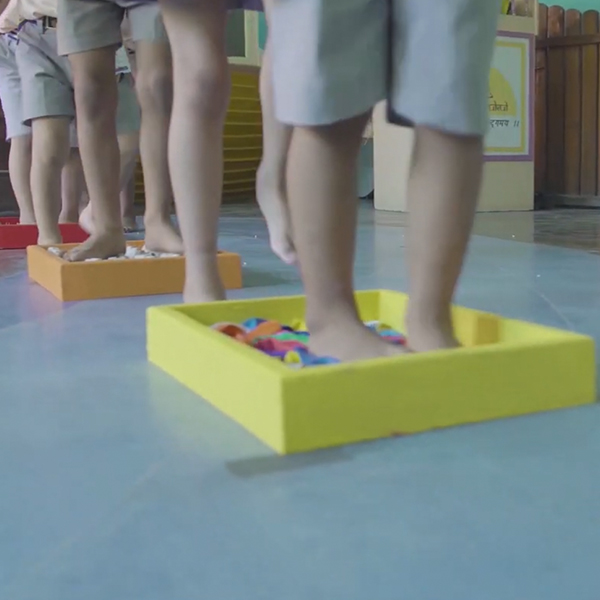
Sensory Learning
Young learners learn best through rich, multi-sensory experiences. Our primary program incorporates activities that engage all six senses: sight, touch, hearing, smell, taste, and proprioception (body awareness). By engaging all six senses, learners develop a deeper understanding of concepts and retain information more effectively. This approach also supports the development of fine and gross motor skills, coordination, sensory integration, and body awareness.
